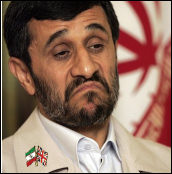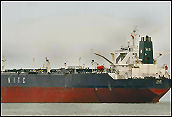 This blog reported earlier on a lawsuit brought by Bloomberg Business Week against the U.K. Export Control Organization (“ECO”) which had rejected a request by Bloomberg to release information on licenses the ECO had granted to permit U.K. companies to export dual-use materials to Iran. The United Kingdom complies with U.N. sanctions and does not allow export of arms and materiel to Iran but does allow licensed export of dual-use goods listed on the Wassenaar list to Iran.
This blog reported earlier on a lawsuit brought by Bloomberg Business Week against the U.K. Export Control Organization (“ECO”) which had rejected a request by Bloomberg to release information on licenses the ECO had granted to permit U.K. companies to export dual-use materials to Iran. The United Kingdom complies with U.N. sanctions and does not allow export of arms and materiel to Iran but does allow licensed export of dual-use goods listed on the Wassenaar list to Iran.
The ECO argued that disclosure of these names could cause these companies to lose their ability to use U.S. commercial banking facilities, and the Tribunal, saying the the possibility of U.S. meddling was “disturbing,” agreed:
There is a significant public interest in protecting large and small firms, which trade lawfully and legitimately, from economic harm from a form of embargo imposed by banks, competitors, suppliers, clients and possibly foreign governments. … The tribunal felt some concern at the prospect of a U.K. company, trading quite lawfully in terms of U.K., EU and international law, suffering possibly fatal commercial damage through the extraterritorial intervention of our closest ally.
Bloomberg‘s editor Matthew Winkler objected to the tribunal’s ruling, noting that the tribunal relied on “secret evidence” asserting that “banks will withdraw funding for companies if the public knew who is doing business with whom.â€

 Posted by
Posted by  Category:
Category: 

 Nothing much of interest at the Sanctions breakout yesterday during the 2011 Update conference held by the Bureau of Industry and Security. The panel members included two people from the Office of Foreign Assets Control (“OFAC”) who went over some aspects of the new Libya sanctions and who conceded, during the Q&A session, that all the work on these new sanctions had slowed down their processing of licenses to Iran for food, medicine and medical devices. (Those exports are permitted under the
Nothing much of interest at the Sanctions breakout yesterday during the 2011 Update conference held by the Bureau of Industry and Security. The panel members included two people from the Office of Foreign Assets Control (“OFAC”) who went over some aspects of the new Libya sanctions and who conceded, during the Q&A session, that all the work on these new sanctions had slowed down their processing of licenses to Iran for food, medicine and medical devices. (Those exports are permitted under the  On March 17, 2008, the Bureau of Industry and Security (“BIS”)
On March 17, 2008, the Bureau of Industry and Security (“BIS”)  The Office of Foreign Assets Control (“OFAC”) today released its monthly civil penalty
The Office of Foreign Assets Control (“OFAC”) today released its monthly civil penalty 

